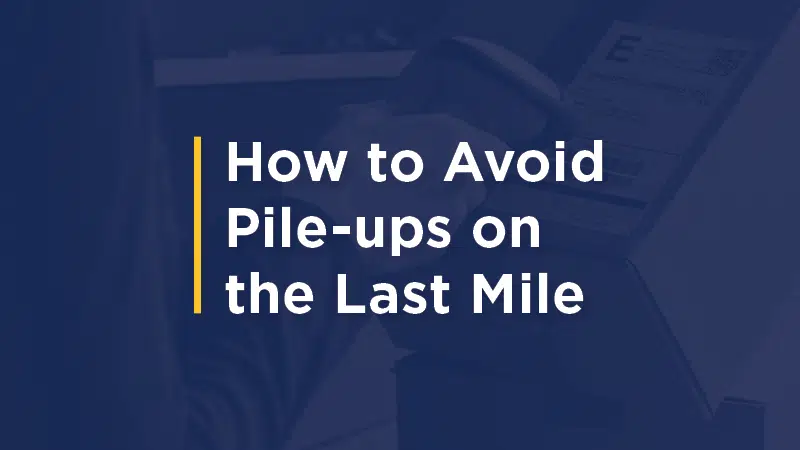Much like a successful marriage, the relationship between a retailer and their e-commerce logistics partner has to be mutually beneficial, trust-based and productive. Without these qualities, one or both parties will quickly find themselves wondering why they entered into the agreement.
With changing customer demands, new carrier surcharges, supply chain disruptions, and other challenges taking a bite out of shippers’ bottom lines, those companies are best served by e-commerce logistics management services that bring a high level of value to the table. Even better, these e-commerce logistics providers fulfill their role while helping shippers overcome their key pain points and achieve their organizational goals.
If your e-commerce logistics solution isn’t living up to expectations in these six areas, it may be time to find one that will.
- Technology that Mirrors the Carriers’ Own Systems
This allows e-commerce logistics providers to estimate cost impact and predictive modeling to the penny. Every time the carriers make a change, that change should also be made in your provider’s e-commerce logistics management system. - A Strong Team of Subject Matter Experts
That team should include engineers and analysts that know how to leverage the carriers’ profitability areas to gain better advantages for you (versus what a traditional account rep can manage). Our experts regularly share their insights into e-commerce logistics with the marketplace. - Ongoing Analysis and Strategic “Thinkery”
Look for a partner that thinks well beyond the “one and done” approach. Today’s business environment requires a partner that focuses on continued delivery optimization and cost mitigation. - A Proactive Auditing Function
Rather than relying on a reactive mindset (e.g., asking for the same refunds over and over again), your e-commerce logistics management provider should be working with an “identify and repair” mindset to eliminate these potential issues and mitigate ongoing costs. - Advanced Analytics and KPI Tracking
As e-commerce continues to grow, you need a logistics partner that is constantly innovating and adding functionalities like margin management, SKU-level profitability, KPI tracking, order performance management and high levels of supply chain visibility. - A Problem-solving Mindset
When new accessorials or surcharges are released, your e-commerce logistics provider should be measuring the impacts of those changes on your budget and helping you mitigate those impacts.
Given the global nature of the supply chain and, as we’ve all discovered, the global nature of potential disruptions, a bonus consideration in evaluating prospective partners is their cross-border e-commerce logistics capabilities. These don’t have to be international firms. They just need to be able to manage the regulatory and security regimes associated with cross-border e-commerce logistics, including container shipping and air cargo.
Master Your E-Commerce Supply Chain
Possessing these key qualities, we bring our client partners ongoing value as they race to meet demands for delivery speed, service and choice. Supporting your efforts to enhance customer experience, we also implement strategies to control costs so that you can maintain awareness of how each and every product and customer is performing.
Let’s take a deeper look at the supply chain challenges you are experiencing. Reach out to our supply chain masters today to begin a conversation about your personalized solution.










